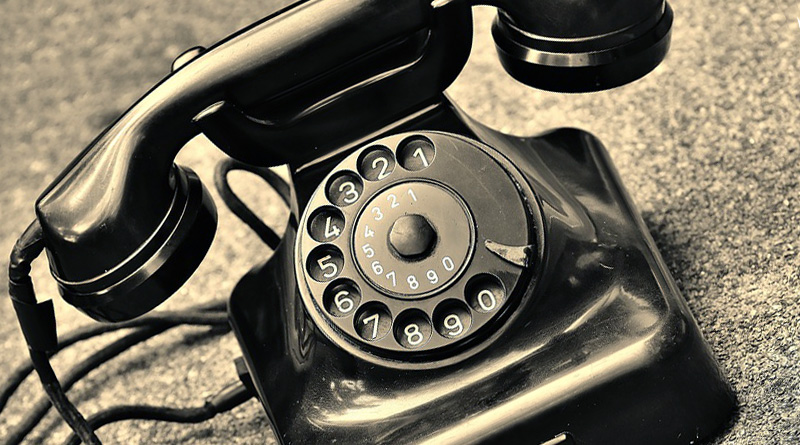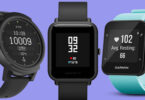I sometimes hear some people say that science has replaced religion (well, not everywhere) and that some are afraid of the omnipotence of technology.
Being neither a scientist nor a religious person, I would have a hard time commenting on this assertion, but I am surprised by chance from certain encounters that there are still people around us who do not use technology. But then not at all.
So I have in my relations two people (2) who do not have a mobile phone. I’m not talking about smartphones, I’m talking about the good old basic mobile that is just used for making calls, a purely practical thing, you know. One of them doesn’t own a car, and I suspect he doesn’t even have a driver’s license (yes that’s suspicious :-)). Strange for a man in his forties urban bobo anyway, right?

I also note that the people in question are divided into two categories.
In the first category, those which make hostility to new technologies a matter of principle which borders on politico-ideological commitment, in which we find a jumble of alter-globalization, rejection of the consumer society, and ecological activism (which often goes together elsewhere). These people have nothing against technologies as such, but refuse them for all the collateral damage that they would be supposed to cause, while omitting nevertheless to put in the balance the progress which they constitute for man, and even for humanity, let’s be crazy.
In the second category, we find people who, despite a rather high socio-cultural and professional level, ignore new technologies because they do not see the usefulness of them, preferring to favor a way of life in which contact in real life would be fundamental. I speak of contact in real life for lack of finding a better terminology because I make the difference with human contact: the most common mistake made by those who are resistant to the internet, for example, is to think that it is a tool of alienation and isolation. We all know that, well used, it’s the exact opposite: seeing the craze for social media, forums, and instant messaging. For an example of alleged alienation, I can give 10 examples of socialization.
Yes-life (as opposed to no-life, hahaha) are also those who do not use ATMs but will withdraw their money from the bank to pay everything in cash (like some traders, but for other reasons … ). We could certainly find many other examples of denial of technology.
It is an illusion to think that technology is alienating humans. The whole history of evolution, and its phenomenal acceleration in the 20th and 21st centuries, tends to prove the opposite: from the printing press to the railroad, from aviation to the TSF, from the written press to television, the great innovations adopted en masse are those which have enabled man to communicate, and men to come together.

Living without a smartphone
They use social networks, email, own tablets, and easily navigate the web. However, the following three people made the choice to live without a smartphone. More freedom and less stress, for a better quality of life, they say. Let’s hear what they say.
Johanne Le Blanc: preserving your freedom
“I don’t have a cell phone, I’ve never had one,” explains Johanne Le Blanc. I never felt the need for it. With the kids, I would rather have a landline at home that was useful for everyone, rather than having a smartphone that would only be good for me. ” She uses social networks from her home computer, people in her inner circle call her at home, not to mention the answering machine and Facebook. She allows herself the freedom to take messages when it suits her.
“Not having a cell phone, in addition to [allowing] being more present in the moment, is also a form of freedom. I see the others who are hooked up to their cellphones and who have this need, as soon as a bell rings, to look at what is happening, once their curiosity is piqued … That does not interest me. “
Maxim Bruneau: talking to people, for real
“My father had one and he was always bothered with it,” recalls Maxim. When I was younger, it was something that stood out for me. Today, being a business owner, I can hardly imagine how much of a burden it would become to have one. It’s something that would bother me more than anything. ” The entrepreneur who runs a bicycle shop does not feel that he is harder to reach. “With text messages and Facebook, we waste too much time. I do not find it to be a quick means of communication. I prefer that we call each other. It’s more efficient and I can feel the tone of the person’s voice. It’s more human. ”
But what to do without a smartphone when you have to wait and wait? “I look around, I talk to people, if there is a book in a waiting room, I read. I like being around people.”
Pascal Chenot: to be totally there
He once owned a cell phone, but he got rid of it after a little over a year, tired of living with the urgency to answer when people contacted him. Today, he uses his girlfriend’s old smartphone, without a SIM card, only to have access to WiFi when he is on the move. “Why do I have to answer if I’m busy?” Why take the time to interact with those who are not there and who is talking to me by text message, when I am with people in front of me? I don’t need to be accessible that much. ” He does not plan to acquire a portable device in the medium or long term. “I’m very happy without a cell phone. I see everyone texting and waiting for instant answers. Seems like it’s getting stressful for them to be accessible all the time. When I’m with someone, I’m there 100%. I don’t feel like I have to look at my phone or sort things out elsewhere. ”
Conclusion:
Yes, a person can live without any gadget but because of the advancing technology, it will be difficult for him to do things that people who use gadgets do. Bank withdrawals for example, if he waits for the bank to open so he can make an over-the-counter withdrawal, it will take overnight, as opposed to using an ATM.






